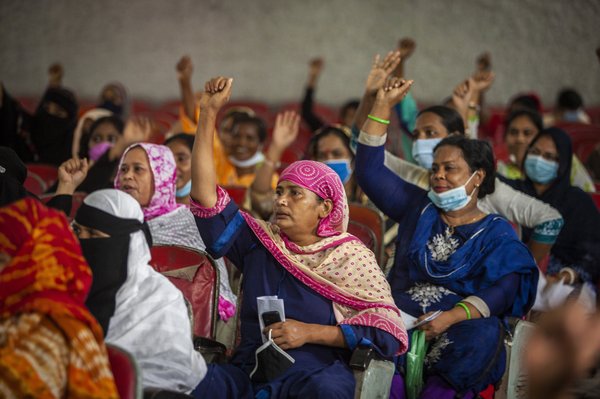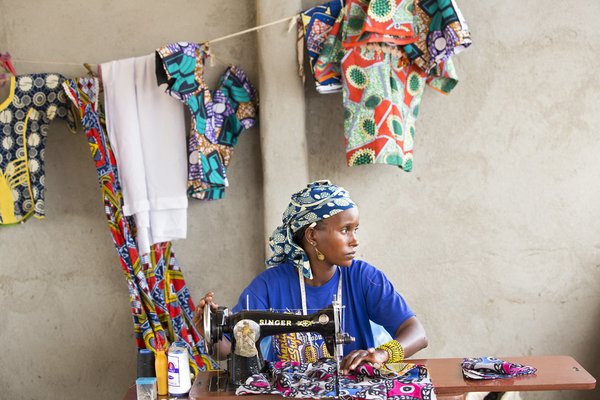
Safe and Fair: Women in Mae Sot, Thailand. Realizing women migrant workers’ rights and opportunities in the ASEAN region. Photo: UN Women/Younghwa Choi. CC BY-NC-ND 2.0.
This policy brief, authored by Tess Pilkington, was published by the United Nations University Centre for Policy Research. Find the original post here.
Although gender affects all migrants at all stages of the migration process, it often has specific implications for women and girls, as well as marginalized groups such as Lesbian, Gay, Bisexual, Transgender, Queer, Intersex, and Asexual (LGBTQIA+) persons.
The international community increasingly acknowledges the importance of gender-responsive migration governance that is not only gender sensitive in policy but also in practice. The Global Compact for Safe, Orderly and Regular Migration (GCM) recognizes the different forms that gender-responsive migration governance might assume.
This policy brief presents the findings of a roundtable discussion, organized by UNU-CPR in collaboration with UN Women and the Migration for Development and Equality (MIDEQ) Hub. The roundtable convened UN agencies, academics, international organizations, and civil society, to facilitate the exchange of best practices, resources, and guidance, focusing on mainstreaming a gender perspective in migration governance, particularly in the context of implementing the GCM.



